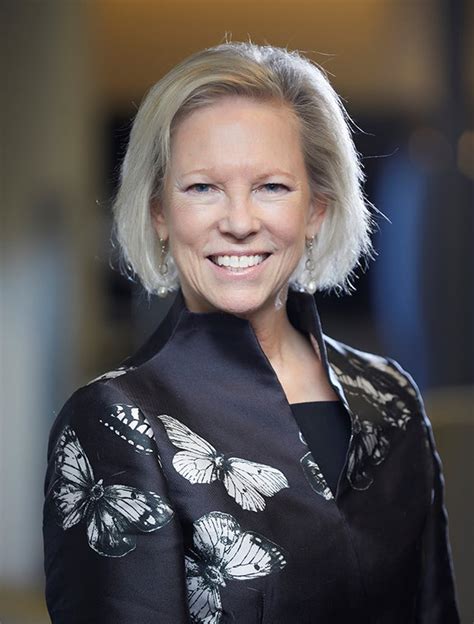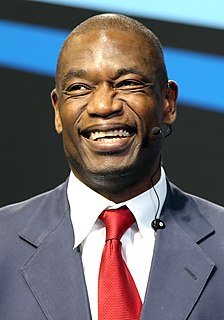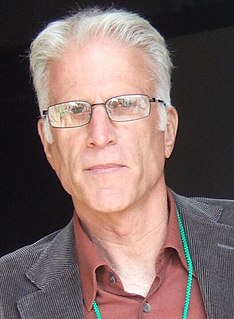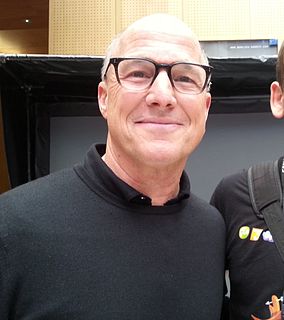A Quote by Kathy Calvin
You probably don't think twice about going into your kitchen and turning a few knobs to prepare a meal for yourself and your family on an electric or gas range. But for nearly 3 billion people in developing countries who depend on solid fuels to cook their food, the simple act of cooking results in 4 million premature deaths every year from exposure to toxic smoke.
Quote Topics
About
Act
Billion
Cook
Cooking
Countries
Deaths
Depend
Developing
Developing Countries
Electric
Every
Exposure
Family
Few
Food
Fuels
Gas
Going
Kitchen
Knobs
Meal
Million
Nearly
Our Family
People
Premature
Premature Death
Prepare
Range
Results
Simple
Simple Act
Smoke
Solid
Think
Think Twice
Toxic
Turning
Twice
Year
Your
Yourself
Related Quotes
Any guilt about food, shame about the body, or judgment about health are considered stressors by the brain and are immediately transduced into their electrochemical equivalents in the body. You could eat the healthiest meal on the planet, but if you’re thinking toxic thoughts the digestion of your food goes down and your fat storage metabolism can go up. Likewise, you could be eating a nutritionally challenged meal, but if your head and heart are in the right place, the nutritive power of your food will be increased.
I think about what I eat every day. I try to eat as locally as I can and as healthily as I can. When you prepare a historic recipe that could as easily been eaten in the 1800s as in 2014, it is a powerful act. When you take that food and its associated memory and put it in your body, it becomes part of who you are. While most people do not think about it consciously, there is an honoring of history that happens during that meal.
I do think we have a food problem. In 2006, which is the year for which we have the latest data, 35.5 million Americans were food insecure. That means there are 35.5 million Americans who are so hard up at some point during the year that they didn't know where their next meal was coming from. That's a lot of Americans. They don't get reported very much because there's nothing spectacular about people skipping a meal because they're poor. The media tends to ignore that, just as it ignores the sort of chronic food shortages elsewhere in the world.
Here are two facts that should not both be true:
- There is sufficient food produced in the world every year to feed every human being on the planet.
- Nearly 800 million people literally go hungry every day, with more than a third of the earth's population -- 2 billion men and women -- malnourished one way or another, according to the United Nations Food and Agriculture Organization.
Simply by starting to cook again, you declare your independence from the culture of fast food. As soon as you cook, you start thinking about ingredients. You start thinking about plants and animals and not the microwave. And you will find that your diet, just by that one simple act, that is greatly improved.
The biggest danger we face is overfishing. We literally could fish out our oceans, some scientists believe, in the next 40, 50, 60 years. We are fishing out the top of the food chain, and it's pretty crucial because about 200 million people depend on fish and fishing for their livelihood, and about a billion people, mostly in poorer countries, depend on fish for their protein. So this is a big problem. Good news is, it's fixable.
Imagine if we had a food system that actually produced wholesome food. Imagine if it produced that food in a way that restored the land. Imagine if we could eat every meal knowing these few simple things: What it is we're eating. Where it came from. How it found its way to our table. And what it really cost. If that was the reality, then every meal would have the potential to be a perfect meal.
I do a lot of cooking. I've always cooked for my family and my father and I cooked together. It's just one of the things I like to do. If you came around my house for dinner, you'd watch me cook as we sat around the kitchen and cooked and talked. For me, that's centralised... friendship and family around food and cooking.
Climate experts say we should tell villagers in developing countries to reduce the amount of cooking smoke they generate to help fix global warming. You know, it's as if these people don't hate us enough already. I mean, they live in mud huts, they have thatch roofs, their clothes are made of straw. We pull up in a bunch of Humvees and SUVs going, 'Hey, you want to cut the smoke out of here?'































